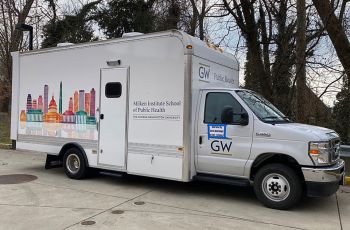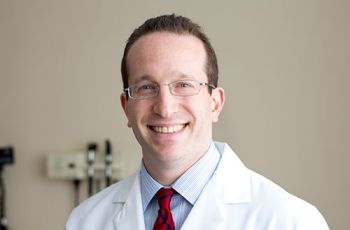News Archive
Michael G. Knight, MD, MSHP, is adding a new role to his roster of responsibilities: associate chief quality and population health officer with the George Washington University (GW) Medical Faculty Associates (MFA). Currently, Knight serves as the MFA patient safety officer and is a primary care…
Congratulations to all our students, alumni, faculty, and staff on their recent success. The items below highlight the breadth of achievement and expertise that can be found at the George Washington University (GW) School of Medicine and Health Sciences (SMHS) in recent months.
Life before COVID-19 was busy for Rebecca [not her real name], very busy. She’s the quintessential Washington professional: a D.C. lawyer who regularly logged 60-hour work weeks, spent nights out at the Kennedy Center or at dinner parties with friends, and always made time for the gym.
The GW School of Medicine and Health Sciences has tapped Grace Henry, EdD, to serve as its new assistant dean and director of the Office of Diversity and Inclusion. The position was created to advance the student experience in academic excellence and embrace and enhance diversity and inclusion…
During 2020, when recruitment for surgical residencies largely moved online, material targeting underrepresented in medicine groups did not rise to meet the need, according to a recent study by a team from the George Washington University School of Medicine and Health Sciences.
A team of researchers from the George Washington University (GW) has been selected as one of five sites participating in the HIV Prevention Trials Network (HPTN) INTEGRA study (HPTN 094).
With a five-year, $2.17 million grant from the National Institutes of Health, Wenge Zhu, PhD, associate professor of biochemistry and molecular medicine at the George Washington University School of Medicine and Health Sciences, is aiming to help ovarian cancer patients overcome resistance to…
Nanotechnology delivery systems may be an innovative and effective approach to delivering cannabinoids for skin care, according to a team from the Department of Dermatology at the George Washington University School of Medicine and Health Sciences.
Tailoring specific learning methods to varying learning approaches may contribute to improved leadership competencies, according to a study conducted by five researchers from the George Washington University School of Medicine and Health Sciences.
The Washington Business Journal interviewed Adam Friedman, MD, professor and chair of the Department of Dermatology for their Executive Profile series.






